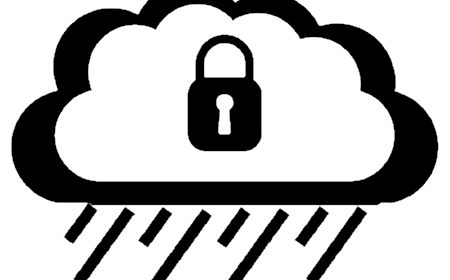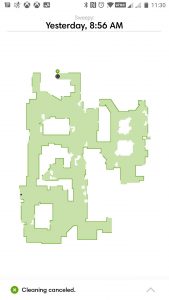Yes, privacy matters, but…

This morning my sister, with whom I have an ongoing discussion around “smart device” privacy, sent me a link to Gizmodo’s “The House That Spied On Me”. As you can probably tell from the title, it’s mostly about how our connected devices collect and transmit information about us to The Cloud. Some of this is quite alarming, for e.g. Hulu doesn’t encrypt traffic. So anyone who has network hardware between you and their servers can tell what you watch. Unconscionable. Other bits, I don’t really understand the concern.
 It’s fine with me that Roomba is mapping my house. Frankly, the “detailed” map of my home kinda sucks. I live here and it’s a struggle to figure out the orientation. Now, I completely understand that there are many things that the iRobot can tell about my house, and that is expanding. For example, they just invited us to participate in a BETA where the vacuum will map Wi-Fi strength. And as a device that is connected to the same network as most of my other IoT kit, it can also figure out what else we have and interact with it. Although, that last bit is part of the value-add for many connected devices.
It’s fine with me that Roomba is mapping my house. Frankly, the “detailed” map of my home kinda sucks. I live here and it’s a struggle to figure out the orientation. Now, I completely understand that there are many things that the iRobot can tell about my house, and that is expanding. For example, they just invited us to participate in a BETA where the vacuum will map Wi-Fi strength. And as a device that is connected to the same network as most of my other IoT kit, it can also figure out what else we have and interact with it. Although, that last bit is part of the value-add for many connected devices.
I don’t care that Amazon Echos request the “Kindle Reachability Probe Page” every few minutes. If you have an Echo, and noticed that periodically it goes red because it lost Internet connectivity, this is probably how it detects that. For a connected device to provide value, most of which comes from being attached to the Internet, knowing this state is important. Local infrastructure is hard, and expensive: whether that is securing intellectual property assets (e.g. machine learning algorithms), storage, or compute power. The reason why camera systems from Arlo, Nest, and Ring are popular is because they remove that barrier. You don’t need local storage, or much technical savvy to build an adequate monitoring system. There’s a trade-off here, and it should be obvious.
Personally, I’m not OK with this always, or more importantly, in taking a Cloud dependency for my camera system – so we have a local NVR. Also, even with local infrastructure I wouldn’t put cameras in the house, but that is a personal cost/benefit question as well. But, on something like a Fitbit I don’t have an issue.
Privacy concerns aside, I completely agree that interoperability is a major problem with many connected devices. You have to do a lot of research to select products that play nice together, and it is potentially quite expensive to switch platforms if you want to do that later. This is not a settled thing, and it shouldn’t be as hard as it is. That said, a significant portion of both the interoperability and privacy concern can be addressed with something like Z-Wave. All the communication, control, and intelligence is local. More over, by adding real “smarts” (as opposed to just connectivity) here personal patterns can become somewhat obfuscated as devices react to events and human requested commands it becomes more difficult to glean identifiable information.
Lastly, I do not understand the value of a “smart” coffee machine unless it does everything for you. And to be clear, I mean everything but load whole beans once a week. If I have to empty the filter, grind the beans the night before (eww), and add water to make it work. I’m just not interested. That isn’t smart, it’s a deferred work device that requires additional planning. Smart devices should reduce the amount of effort that is required to make something happen, not make it more complex. I think this speaks more widely to the “smart” home in general. There is a massive amount of value in adding intelligence to the home, but it needs to make sense. Not everything should be connected, yet. If you target the major, settled, areas and select good products that play nice together – your smart home will work.

Ha, I guess I’ll be more careful before forwarding links in the future. I agree with Andy’s break down of the weaknesses around the complaints in the Gizmodo article. I have never had any long harboring desire for a smart coffee maker. I am old school on that one. Cafetiere all the way. Interoperability is an issue that could have been addressed before purchase. Though it is a frequently constraint as one attempts to expand the smart home universe.
My concern as I and others dive into smart home products is that laws do not keep up with the technology. Technology can be used unwittingly as a surveillance device for employer and government alike to modify or control behaviour. I have ready made examples of this from my own employer. I am sure many others do to. Where employers use wellness incentives and wearables to attempt to change employee health and alter the healthcare cost dynamic. It seems short sighted (that is creates classes of employees based on health rather than performance and competence) , controlling and primarily an excuse to shift costs towards employees.
I also see areas of concern where the police are using phone location data to identify suspects. Police have argued that they do not need a warrant for said location data – there is a case before SCOTUS on this exact issue. There are similar concerns around smart assistances, Amazon Echo murder case, and data privacy. I do not trust in my data’s banality to keep me and others from government, corporate or untoward actors attempting to use that data in ways that are less than beneficial to me.